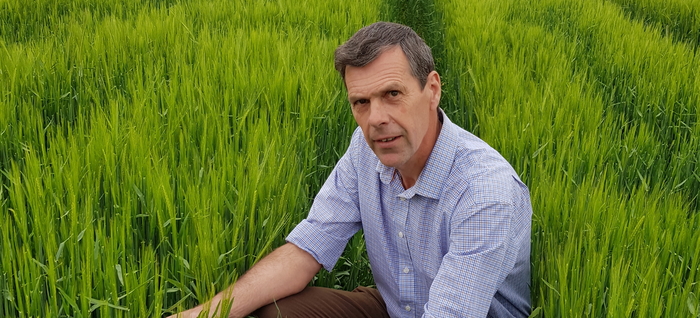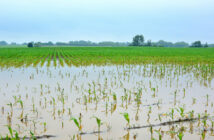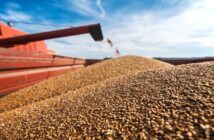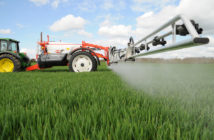Arable producers are urged to tap into new and existing agri-environmental schemes immediately to help plug lost revenue from reducing direct payments and seeking the right advice is key to optimising outcomes.
Farm businesses will soon have the option to sign up to DEFRA’s new Environmental Land Management (E.L.M.) scheme, which aims to replace current area-based subsidies with the “public money for public good” philosophy.
This essentially means paying land managers to make changes that will secure a range of long-term environmental benefits and address the environmental challenges associated with agriculture.
DEFRA’s James LePage – who has been instrumental in the creation of the E.L.M. scheme – delivered an update on its progress at last week’s virtual Association of Independent Crop Consultants (AICC) annual technical conference.
Reassuringly, he told members that increased emphasis has been given to delivering the desired environmental outcomes in a way that is financially viable for farmers and land managers.
It’s also positive that E.L.M. has been simplified relative to previous agri-environment schemes, allowing farms to make simple choices that require simple actions and make sound business sense.
Despite its simplification, a common theme amongst feedback from early E.L.M. test and trials with about 3,000 stakeholders was how important advisory services will be in the successful implementation of the scheme.
Mr LePage pointed out that the knowledge and skills required by land managers to manage the process of application and delivery are not always there, leaving a significant gap to be filled by third parties.
The feedback also suggested that in many cases, advice was sought to avoid “getting caught” and this is an attitude that he hoped the advisory sector will be able to shift.
“That’s clearly what has been instilled in folk by previous schemes, as it is a key driver for why people seek advice,” he explained.
“We hope in the future that it’s less of a driver. Clearly, we need to avoid fraud, but we want people to be motivated by delivering better environmental outcomes.
Significant role
Lincolnshire-based Arable Alliance adviser Andrew Wells said that AICC members will play a significant role in delivering the positive environmental and business outcomes that the E.L.M. scheme is designed to deliver.
The membership advises about 50% of the British arable area and on many farms, AICC members are a trusted member of the management team with involvement in many aspects of the business.
This puts them in a prime position to guide arable farmers though the application process for E.L.M. and help in its smooth operation once up and running.
“A lot of our members are already in a great position to give that advice, as they have been providing advice on previous schemes for many years,” he said.
This view was backed up by an interactive poll conducted at the AICC conference, which showed that more than 90% of AICC members are either involved at all levels or regularly advise on the implementation of agri-environment schemes on farm.
Two further polls suggested that a high proportion of clients are either already in schemes or are seriously considering them in the near future.
“This tells me that AICC members are already dealing with an engaged client base.
“It also gives me confidence that our advisers are well placed to drive E.L.M. uptake forward and provide the appropriate and best advice to those thinking of signing up,” said Mr Wells.
Pilot scheme
Mr LePage went on to outline how the first phase of E.L.M. would be implemented between 2021 and 2024, with a National Pilot starting later this year in England and Wales.
The primary focus in the first year will be on the first of three components of the scheme, known as the Sustainable Farming Incentive (see E.L.M. scheme – what are the key components?)
The other two more long-term and strategic components, including Local Nature Recovery and Landscape Recovery, will be added to the pilot from 2022.
DEFRA is currently seeking a diverse range of 1,000 farm businesses from across England and Wales to take part in the National Pilot.
Mr Wells encouraged BPS recipients currently not taking part in existing agri-environment scheme to consider submitting an expression of interest for the Pilot.
As direct payments are phased out between now and 2027, he believes it is important to learn as much as possible about the process in its formative stages, and for growers to influence some of the finer detail that is yet to be finalised.
“In the past, engagement in the creation of schemes has been limited and consequently, we’ve ended up with teething problems and lower than anticipated uptake.
“The great thing about E.L.M. so far is that there’s already been plenty of opportunity to take part and engage before it’s started. Combined with the huge effort put in by DEFRA and the RPA and continuing discussion, we have the opportunity to create something that works for everyone.”
Countryside stewardship
Ed Earnshaw, who wrapped up the session on future environmental policy, urged those that miss the cut on the National E.L.M. pilot – or would rather wait to see the finer detail of E.L.M. before applying – to consider Countryside Stewardship for the next five years.
This is safe in the knowledge that there is no penalty for ending a five-year CS scheme agreement early and switching to E.L.M. should they wish.
Action is required quickly for 2022, with applications opening in February and closing in July, before new schemes start on 1 January 2022.
Payments are as available as capital grants for things like fencing or hedge planting, or for options delivered annually which are either fixed (e.g. buildings maintenance) or rotational (e.g. two-year legume fallow).
Rotational options like the legume fallow can stack up favourably against existing crops like oilseed rape in an arable rotation, where agronomic problems are making it unviable on some farms.
Some of the CS options may also be suitable in fields or part fields that are unproductive under current management and getting something back from these areas will be critical as BPS income declines.
“It’s about squeezing that lemon – making every acre pay so that you can run a profitable, easier to run and sustainable business in the longer term,” added Mr Earnshaw.
E.L.M. scheme – what are the key components?
| Component 1 – Sustainable Farming Incentive | Component 2 – Local Nature Recovery | Component 3 – Landscape Recovery | |
|
Description |
Simple actions that achieve environmental outcomes.
|
Locally targeted environmental action with encouragement for collaboration
|
Landscape and ecosystem recovery through long-term, land use change projects
|
|
Examples |
Soil and nutrient management, integrated pest management, efficient water use |
Habitat restoration, creation and management, flood management |
Large scale forest and woodland creation, peatland restoration |
|
Eligibility
|
All farmers |
All land managers |
All land managers |




